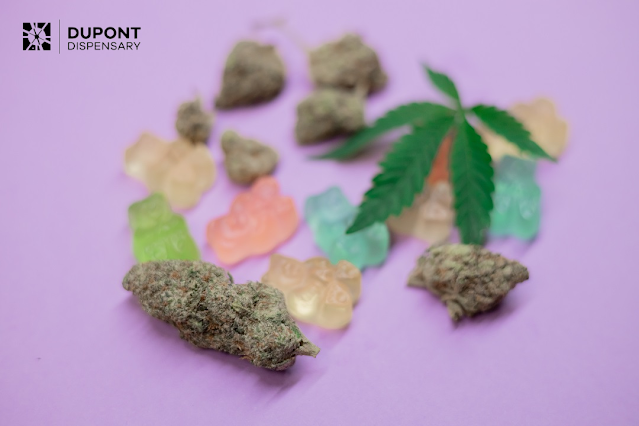Can Cannabis Be a Substitute for Alcohol?
In many places across the world, alcohol is a component of the social fabric. Drinking may improve mood, relieve tension, and lessen inhibitions in various situations, including wedding toasts, a night out with friends, or a relaxing evening after a long day at work.
However, this legal substance can potentially inflict significant harm to both the individual who uses it and society as a whole. Alcohol is responsible for around 88,000 deaths per year, including suicide, homicide, and deaths from alcohol-related illnesses such as heart and liver damage. There's a growing body of data, and marijuana dispensary in Washington DC suggests that cannabis, in its many forms, can be a safer alternative to alcohol.
Cannabis a Substitute:
Cannabis also has an effect on the pleasure-reward-learning circuit in the brain. In addition to euphoria, relaxation, and decreased inhibitions, cannabis users commonly experience euphoria, relaxation, and lowered inhibitions. However, such effects are caused by a variety of physiological systems.
Numerous receptor networks—cell systems capable of reacting to triggers created by the body or comparable chemicals received from outside sources—are found in the human body. The endocannabinoid receptor system, a ubiquitous system of receptors that reacts to active cannabis chemicals like cannabidiol (CBD) and tetrahydrocannabinol (THC), is one of the most extensive receptor networks in humans and other vertebrate species (THC).
These receptors are engaged when a person eats marijuana, resulting in various benefits such as pain and inflammation alleviation, muscular relaxation, and a more robust immune system. Cannabis causes modest adverse effects such as reduced coordination and focus, although the danger of overdosing or death is relatively minimal. In reality, no one has ever died due to taking too much cannabis.
However, there is no alcohol receptor network in the body. Alcohol affects several receptors in the brain and body. While it can make individuals feel better briefly by altering mood and increasing relaxation, it also disrupts and slows cell communication. Furthermore, alcohol is a neurotoxin capable of shrinking brain cells and malfunctioning and dying cells in other organs such as the liver.
Millions of dollars are spent on alcohol treatment and recovery programs, but more than 60% of those who enter treatment relapse, sometimes numerous times. For many, remaining clean involves continual monitoring and, in some cases, the use of various drugs to suppress the urge to drink.
A growing number of alcohol-related organizations, weed dispensary in Washington Dc, and support groups for recovering alcoholics are adopting "marijuana maintenance," a method of abstaining from alcohol, by replacing cannabis products containing CBD or a mix of CBD and THC. Cannabis products can treat the pain and misery of mental or physical ailments in the same manner that alcohol does, but without the significant social and health hazards that alcohol has.
Cannabis, on the other hand, can deliver the same great emotions of relaxation and exhilaration that alcohol does, but with a lesser chance of toxicity and adverse consequences on both consumers and the environment.
Conclusion:
At Dupont Dispensary, we believes cannabis might supply that with a low risk of addiction and a natural affinity for the body's receptor system—and become the "exit drug" from alcohol's damaging consequences that everyone has been yearning for.
.png)


Comments
Post a Comment